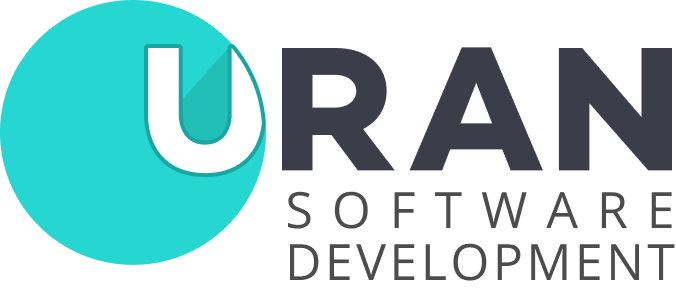The internet has evolved significantly over the years, and we are now on the cusp of a revolutionary shift with Web 3.0.
This new era of the internet brings exciting web 3.0 business opportunities, redefining how we interact online and unlocking a world of potential.
In this article, we will delve into the concept of Web 3 development and explore the business possibilities it presents.
We will discuss the key reasons why Web 3.0 will benefit your business and how harnessing its capabilities can pave the way for unprecedented growth and success in the digital landscape.
From enhanced data privacy and decentralized applications to new revenue streams and customer engagement, the business opportunities in Web 3.0 are immense and essential for seeking a competitive edge in the modern era.
What is Web 3.0?
To answer the question what is Web3, also known as the "Semantic Web" or the "Decentralized Web," it refers to the next generation of the internet poised to revolutionize how we interact and transact online.
Unlike its predecessors, Web 3.0 is characterized by a decentralized and peer-to-peer architecture powered by innovative technologies such as blockchain.
This new era of the internet aims to provide a more secure, transparent, and user-centric online experience.
At the core of Web3 is blockchain technology, a distributed and tamper-resistant ledger that enables decentralized data storage and transaction verification.
What is Web3 unique for? Unlike traditional internet systems, it operates without the need for central authorities or intermediaries, fostering trust and transparency through consensus algorithms.
This empowerment of individuals in online interactions sets the stage for a more equitable and inclusive Internet.
Web 3 development revolves around building decentralized applications (dApps) that operate on blockchain networks.
These dApps provide a more seamless and secure user experience, as they are resistant to censorship and single points of failure.
With the use of smart contracts, dApps enable automated and verifiable transactions, opening up new possibilities for financial services, supply chain management, and other industries.
Benefits Of Adopting To Web 3.0 For Businesses
What are the benefits of Web3 for Businesses? Web3, the next evolutionary phase of the internet, brings a host of advantages that can transform how businesses operate and interact in the digital world.
By embracing Web3 technologies, companies can unlock a range of benefits that streamline processes, enhance collaboration, and bolster security.
There are several benefits and drawbacks of web3 technology.
However, some major benefits of web3 are streamlined business processes, no third party required, efficient collaboration with employees, customers, and suppliers, higher transparency in sales-related operations, reduced risk of hacking or cyber-attacks and improved searchability of data.

Streamlined Business Processes
Web 3.0 development services present a transformative opportunity for businesses to streamline operations, optimize processes, and enhance efficiency.
Through the automation capabilities of smart contracts, the deployment of decentralized applications, and the inherent security of blockchain technology, Web 3.0 enables businesses to achieve new levels of productivity and innovation.
Embracing Web 3.0 technologies empowers businesses to stay ahead in a rapidly evolving digital landscape and deliver seamless, secure, and customer-centric experiences.
No Third Party Is Required
Web 3 development introduces a decentralized landscape redefining how businesses operate online.
The decentralized nature of Web 3.0 reduces reliance on intermediaries, eliminating the need for third-party platforms or services.
This shift empowers businesses with increased control, reduced costs, and heightened security.
In Web 3.0 development services, smart contracts and decentralized applications (dApps) enable direct peer-to-peer interactions.
Transactions and agreements are executed automatically, without the involvement of intermediaries like banks or payment processors.
This disintermediation streamlines processes reduces bureaucracy, and expedites transactions, leading to significant cost savings for businesses.
Moreover, businesses no longer need to rely on centralized platforms for data storage or customer interactions.
Decentralized networks offer greater security and data ownership, minimizing the risk of data breaches and unauthorized access.
This enhanced data control builds trust with customers and partners, fostering stronger relationships and brand loyalty.
Efficient Collaboration With Employees, Customers, and Suppliers
Web 3.0 development services enable businesses to experience seamless collaboration among employees, customers, and suppliers, transforming the way stakeholders interact and share information.
Web 3.0's decentralized architecture and innovative technologies facilitate enhanced communication and data sharing, benefiting businesses in numerous ways.
With Web 3 development, businesses can create decentralized applications (dApps) that streamline stakeholder communication.
These dApps enable secure and direct interactions without the need for intermediaries, leading to faster decision-making and increased productivity.
Whether employees collaborating on projects, customers providing feedback, or suppliers sharing essential data, Web 3.0 facilitates real-time interactions across the entire business ecosystem.
Higher Transparency in Sales-Related Operations
Web 3.0 development services revolutionize business transactions by introducing higher transparency in sales-related operations.
Using smart contracts and decentralized ledgers, Web 3.0 ensures trust and accountability in every sales process step. Smart contracts, a cornerstone of Web 3 development, are self-executing agreements that automatically execute predefined actions once specific conditions are met.
These contracts are stored on decentralized blockchain networks, accessible to all relevant parties. As a result, every participant can view and verify the terms and conditions of the contract, ensuring transparency and eliminating the need for blind trust in the transaction.
Furthermore, Web 3.0's decentralized ledgers, such as blockchain, store a comprehensive record of all transactions, from the initial sale to subsequent interactions.
This immutable and auditable ledger ensures that every transaction is traceable and verifiable, reducing the risk of fraud and dispute.
Businesses can access a transparent and real-time history of sales-related activities, promoting stakeholder trust and fostering long-lasting business relationships.
Reduced Risk of Hacking or Cyber-Attacks on Individual Businesses or Enterprises
Web 3.0 development services bring forth a new era of improved security, significantly reducing the risk of hacking and cyber-attacks for individual businesses and enterprises.
This heightened security is achieved through innovative blockchain-based solutions, a core element of Web 3.0 technologies.
In Web 3.0 development, blockchain serves as a decentralized and immutable ledger, recording all transactions and data across a distributed network of nodes.
This distributed nature ensures no single point of failure or vulnerability, making it extremely difficult for malicious actors to compromise the system through a single attack.
Additionally, data stored on a blockchain is cryptographically secured. Information is hashed and linked to the previous block, creating an unalterable chain of blocks.
Any attempt to tamper with the data in a single block would disrupt the entire chain, making it evident that a breach or unauthorized access has occurred.

Improved Searchability of Data
Web 3.0 development introduces transformative improvements in data indexing and search capabilities, promising users more accurate and relevant search results.
This advancement is made possible through the innovative integration of Web 3.0 technologies. In traditional web environments, search engines rely on algorithms to index and retrieve data from centralized databases.
However, Web 3.0 technologies, particularly Web 3 app development , leverage decentralized and distributed data storage systems like blockchain to enhance searchability.
Decentralized data storage ensures that information is spread across multiple nodes rather than confined to a single server.
This decentralized nature of Web 3.0 empowers search engines to access a more extensive range of data sources, enabling a more comprehensive search experience.
Users can retrieve information from various decentralized applications (dApps) that operate on blockchain networks, expanding the scope and accuracy of search results. The potential for more accurate and relevant search results in Web 3.0 fosters a superior user experience.
Users can expect to find information that aligns precisely with their needs, interests, and objectives, leading to greater user satisfaction and engagement.
What is Web 3.0 Application?
Web 3.0 applications represent the next evolutionary phase of the internet, introducing a revolutionary shift in how users interact and experience online platforms.
Leveraging decentralized technologies, these applications prioritize user control, data privacy, and transparency, providing enhanced user experiences and setting new standards for the digital landscape.
Web 3.0 application development services focus on creating innovative and user-centric platforms that leverage decentralized technologies to provide a more efficient, secure, and personalized user experience.
These applications empower users, foster trust, and redefine how data and transactions are managed in the digital realm.
In conclusion, what is web3 application special for? Web 3.0 applications represent a paradigm shift in the digital landscape, revolutionizing how users interact with online platforms.
They prioritize user control, data privacy, and transparency, providing enhanced user experiences and driving the future of the internet. As Web 3.0 application development continues to evolve, businesses and individuals can expect a more user-centric and efficient digital era powered by decentralized technologies.
Web 3.0 Application Examples
Web 3.0 application development services have unleashed a wave of innovation across various industries, transforming the way businesses and individuals interact and conduct transactions.
Some exciting examples of Web 3.0 applications are DeFi, NFTs, Supply Chain Management, Decentralized Social Media, Identity Verification and Decentralized File Storage. Web 3.0 application development services have unleashed a plethora of innovative applications across various industries.
The benefits of Web3 applications are that they empower users with increased control, transparency, and ownership over their digital interactions.
As the Web 3.0 ecosystem continues to evolve, businesses and individuals stand to benefit from more efficient, secure, and user-centric applications that redefine how we interact and transact in the digital world.
How long does it take to develop a Web 3.0 App?
The development timeline of a Web 3.0 application can vary significantly depending on several factors.
Web 3.0 application development is a complex process that involves leveraging decentralized technologies and building innovative functionalities, which impacts the development duration.
The development timeline of a Web 3.0 application depends on factors like project complexity, desired functionalities, integration challenges, security requirements, team expertise, and external dependencies.
As Web 3 app development involves cutting-edge technologies and innovative solutions, allocating sufficient time for planning, development, testing, and deployment is essential.
By understanding and carefully managing these factors, businesses can ensure a successful and timely delivery of their Web 3.0 application development services, offering users a seamless and secure decentralized experience.
How much does it cost to develop a Web 3.0 Application?
Web 3.0 application development services involve leveraging decentralized technologies and building innovative features, which impact the overall cost.
The price of web 3 app development can vary significantly based on several factors, including project scope, desired features, development resources, integration complexity, security measures, and platform choices.
By thoroughly understanding these cost factors and effectively managing the development process, businesses can make informed decisions and ensure a successful and cost-effective implementation of their Web 3.0 application, offering users a cutting-edge and secure decentralized experience.

Conclusion
In light of the above, Web 3.0 represents the next generation of the internet, characterized by decentralized, peer-to-peer networks and integration of blockchain technology.
The benefits of Web3 for businesses are numerous and transformative, providing streamlined processes, increased transparency, enhanced collaboration, and reduced risk of cyber-attacks.
Custom mobile app development services, API integration, and AWS cloud consulting companies are only some examples of how Web 3.0 technologies can be utilized to drive innovation and efficiency.
Web 3.0 development services enable businesses to create decentralized applications (dApps) that offer enhanced user experiences, better security, and greater control over data.
In the age of modern technologies, embracing innovation is critical for businesses to thrive. Investing in Web 3.0 development can lead to a competitive edge, improved customer satisfaction, and long-term success in an increasingly decentralized world.
By staying at the forefront of technology and partnering with skilled developers, businesses can fully leverage the potential of Web 3.0 to drive growth and achieve new heights of success in their respective industries.
Relevant Articles:













































